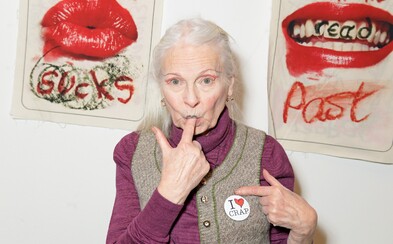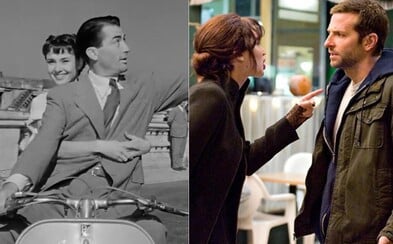 TOP 8 Oscar-winning romantic movies you must watch with your significant other on Valentine's Day
TOP 8 Oscar-winning romantic movies you must watch with your significant other on Valentine's Day
TOP 8 Oscar-winning romantic movies you must watch with your significant other on Valentine's Day
TOP 8 Oscar-winning romantic movies you must watch with your significant other on Valentine's Day
Roman Polański: Talented Director Whose Filmmaking Was Overshadowed By Sexual Scandals
The series of controversial artistic figures continues with the world-famous director, Oscar winner and a man who confessed to the rape of a minor.
If problems persis, please contact administrator.
We bring you the story of Roman Polański. The life of the French-Polish director could be made into a film. As a child with Jewish roots, he survived the Second World War, later he had to cope with the death of his wife Sharon Tate, who was brutally murdered by the followers of Charles Manson. He became famous for the films for which he won a number of awards, including the prestigious Oscar, but in recent years his name is more associated with sexual harassment, for which he was accused by several women.
From a Polish-Jewish family
Roman Polański was born in Paris on August 18, 1933 as Rajmund Liebling. His father, a Polish Jew, was born in Krakow, where the whole family moved when Polanski was three years old. When World War II broke out, they all stayed in the Krakow ghetto, crammed into their apartment with other families.
In 1941, the Nazis sent Roman's half-sister and both parents to Auschwitz. Little Roman escaped deportation only because his father, with the help of several friends, hid him in the village of Wysoka near Wadovica, where he was hidden until the end of the war under the name Roman Wilk. He met his father and half-sister after the war, his mother perished in a concentration camp. The father soon remarried and his new wife insisted that the family be renamed. And so, thanks to his stepmother, Rajmund Liebling became Roman Polański.
First successes as an actor
Cinematography has always attracted him. As a teenager, he developed his skills in radio dramas and films. When he was fifteen, he was cast by the Polish theater Scena Młodego Widza (Scene of the Young Spectator) in the lead role in the play Son of the Regiment. Despite his talent, he was not accepted at the acting school in Krakow or Warsaw at the time. The reason was simple. His father owned a small business and was thus considered a class enemy in newly communist Poland. And so was his son.
But in the theater in 1953, the prominent director and educator Antoni Bohdziewicz noticed him and offered him a role in the film Trzy Opowieści (Three stories). In 1954, Polański began to study at a directing school in Łódź, in the same year he got a big role in the film Pokolenie, directed by Andrzej Wajda. Here, Polański played a member of the resistance of young patriots against the occupiers. And according to many, he often overshadowed the main star and later the legend of Polish cinema, Tadeusz Łomnicky. Although he worked as an actor many times, from the second half of the 1950s he began to assert himself more as a director.
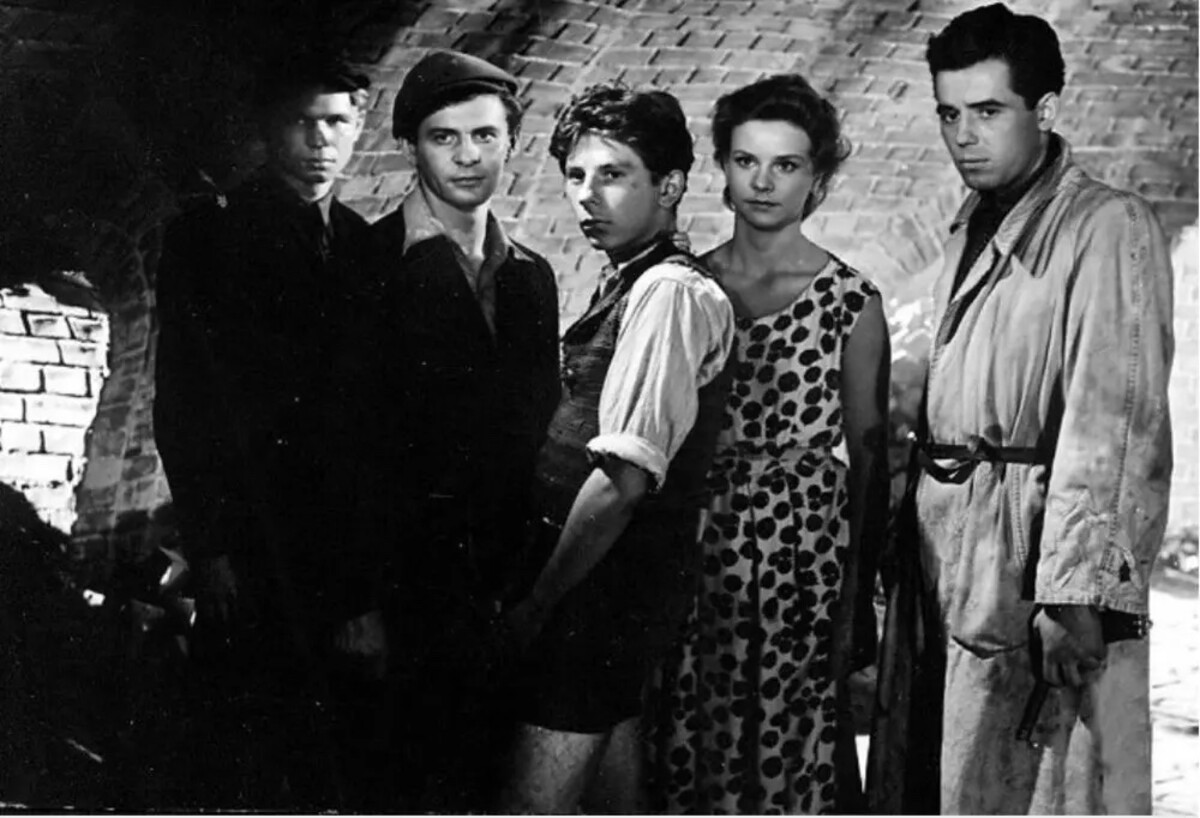
The first film and immediately an Oscar nomination
A series of student pictures revealed the cornerstones of Polanski's style and the themes he explored in his subsequent images. The film A Toothy Smile (1957) in less than two minutes reveals the theme of voyeurism, where eroticism is perceived as a battlefield between men and women. The equally short Murder (1957) anticipates Polanski's fascination with cruelty and crime.
The real success that catapulted Polański to the stars of not only Polish but also world cinema was his debut feature Knife in the Water, which he shot in 1961. It is described as a psychological drama set in the Masurian Lakes, in which only three characters are introduced, which showcases male vanity and moral decay, the conflict between the selfishness of a financially secure journalist and the posturing of a nameless student while his cynical wife looks on. The fact that it was an extraordinary success of an international format is evidenced by the Oscar nomination for the best foreign language film.
Despite his success, he did not receive much attention in Poland. In 1962, he moved to Paris. This moved was followed by the films Repulsion (1965) with the French star Catherine Deneuve in the lead role, and the film The Fearless Vampire Killers (1967).
The film Rosemary's baby (1968) became a cult. A psychological horror about the fragile Rosemary (Mia Farrow), whose nascent domestic idyll is taken from her when she realizes that the child she is carrying under her heart is the fruit of a conspiracy of devil worshipers from the neighborhood of the gloomy New York building The Bramford.
Brutal murder of his wife and unborn son
At the end of the sixties, Polański was a star of global proportions. After a failed marriage to Polish actress Barbora Kwiatkowska, he married American actress and model Sharon Tate in 1968, whom he met on the set of The Fearless Vampire Killers. Their wedding in 1968 became a big event. It didn't take long and the couple announced that they were expecting a child together.
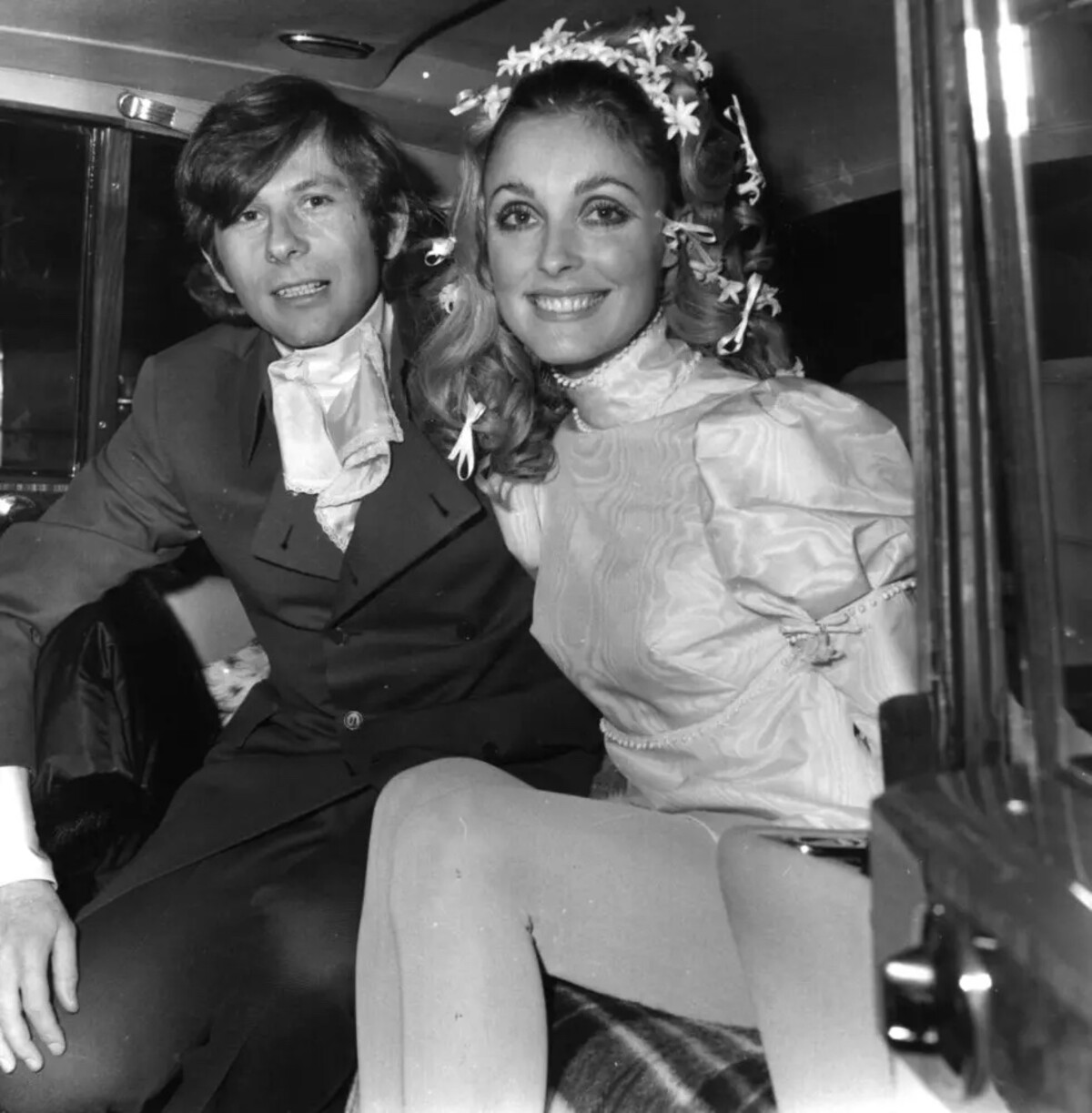
But their family happiness did not last long. On August 9, 1969, Sharon was already eight months pregnant. While Polański was in London on business, she spent time at their home in California with Polański's writer and friend Wojciech Frykowski, his partner Abigail Folger, and her ex-fiancé Jay Sebring, with whom she remained on friendly terms.
Manson was sentenced to death, which was commuted to life imprisonment. He died in 2017. The family members who murdered Sharon Tate, her acquaintances and other people were also given life sentences. Tex Watson, Patricia Krenwinkel and Leslie Van Houten are still serving their sentences today, Susan Atkins until her death from brain cancer in 2009.
Around midnight, three members of the Manson family - Charles "Tex" Watson, Susan Atkins and Patricia Krenwinkel - broke into the house. They gathered all the residents in the living room and murdered them one by one. Sharon wanted them to spare her, but she begged even more to let her unborn child live. She even suggested that they give her two weeks to live to give birth and then kill her. She didn't soften them. Atkins and Watson stabbed her sixteen times. An unborn son, Richard Paul Polański, died with her. Atkins then wrote the word Pig on the front door in Tate's blood.
Polański learned of his wife's death a day later. He helped with the investigation even though he was completely devastated. Some conservative media suggested that he might have had something to do with his wife's death or that her death was punishment for making the satanic film Rosemary's Baby. Polanski then left America for several years.
He couldn't come for the Oscars
During the seventies, eighties and nineties he made many important films. But the greatest success came in 2002 with the film The Pianist. Based on the memoirs of Polish pianist and composer of Jewish origin Władysław Szpilman, Polański made an extraordinary war drama saturated with his own memories of the war.
The story of a Jewish pianist experiencing the horrors of war is still one of the most appreciated films. Of the many awards that The Pianist received, it is necessary to single out the Oscar for the main role for Adrien Brody and Ronald Harwood for the screenplay, as well as the Bafta award for the best film of the year.
Polański himself received the Palme d'Or in Cannes, a César and, after two unconverted nominations, an Oscar for directing. But he couldn't take it personally. He was already an unwelcome person in the United States at that time.
He admitted to intercourse with a thirteen-year-old girl
In 1978, Polański was accused of raping thirteen-year-old Samantha Gailey. Everything was supposed to take place a year prior in the house of actor Jack Nicholson, who lent Polański a villa, where Polański photographed the girl. In the process, he gave her champagne and Quaalude pills, a popular sedative at the time. He then slept with her. He later claimed that the girl had consented to sex and that he did not know how old she was. He was charged with six crimes including sodomy, sex with a minor and rape. He faced fifty years behind bars.
The only charge Polański admitted to was the least serious, sex with a minor. He was given ninety days in jail and had to undergo a psychiatric evaluation. He was released after 42 days and, fearing further arrest, immediately got on a plane to London and then to Paris. As a French citizen, he was safe from extradition back to the United States.
Further accusations overshadow filmmaking
Polański has been on the run ever since. When it looked like the situation would improve after he financially settled with the victim and she forgave him, the year 2009 came. Polański was arrested at the Zurich Film Festival in connection with an American arrest warrant from 1978. After two months of detention, he had to go to house arrest. A year later, the Swiss authorities decided not to extradite him to the United States.
Since then, a total of six women have accused the director of rape, most recently in 2019 the French photographer Valentine Monnier, who published an open letter in the French newspaper Le Parisien. The director allegedly raped her in 1975 at his mountain lodge in Switzerland when she was eighteen. She was said to be afraid to speak for fear he would kill her. Polański denied these accusations.
Polański, now 88, has been married to French actress Emmanuelle Seigner since 1989, with whom he has two children. He continues to make films, his last film is the drama An Officer and A Spy (2019) about the officer Alfred Dreyfus, who is wrongfully accused of treason and sentenced to life imprisonment. Members of the women's rights movement protested against the film being shown in the cinems, as they did not agree with cinemas showing a film by a man accused of sexual abuse.
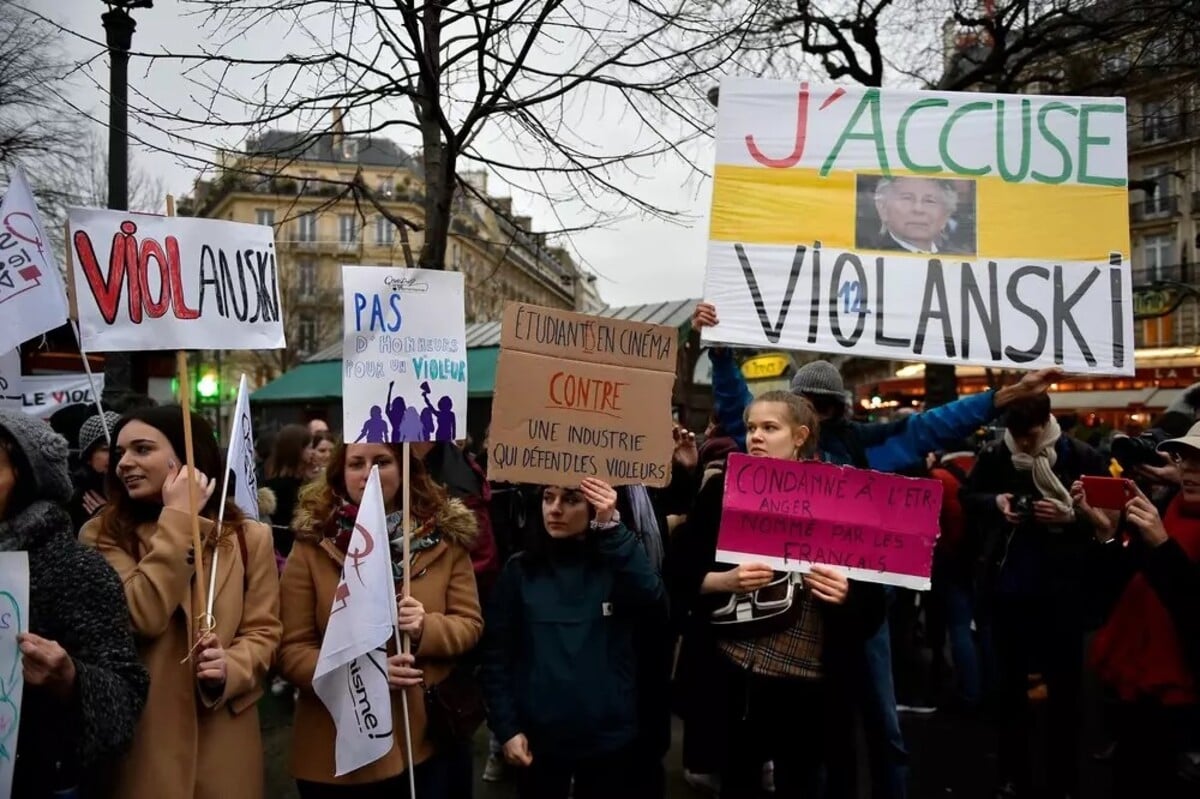
If problems persis, please contact administrator.






